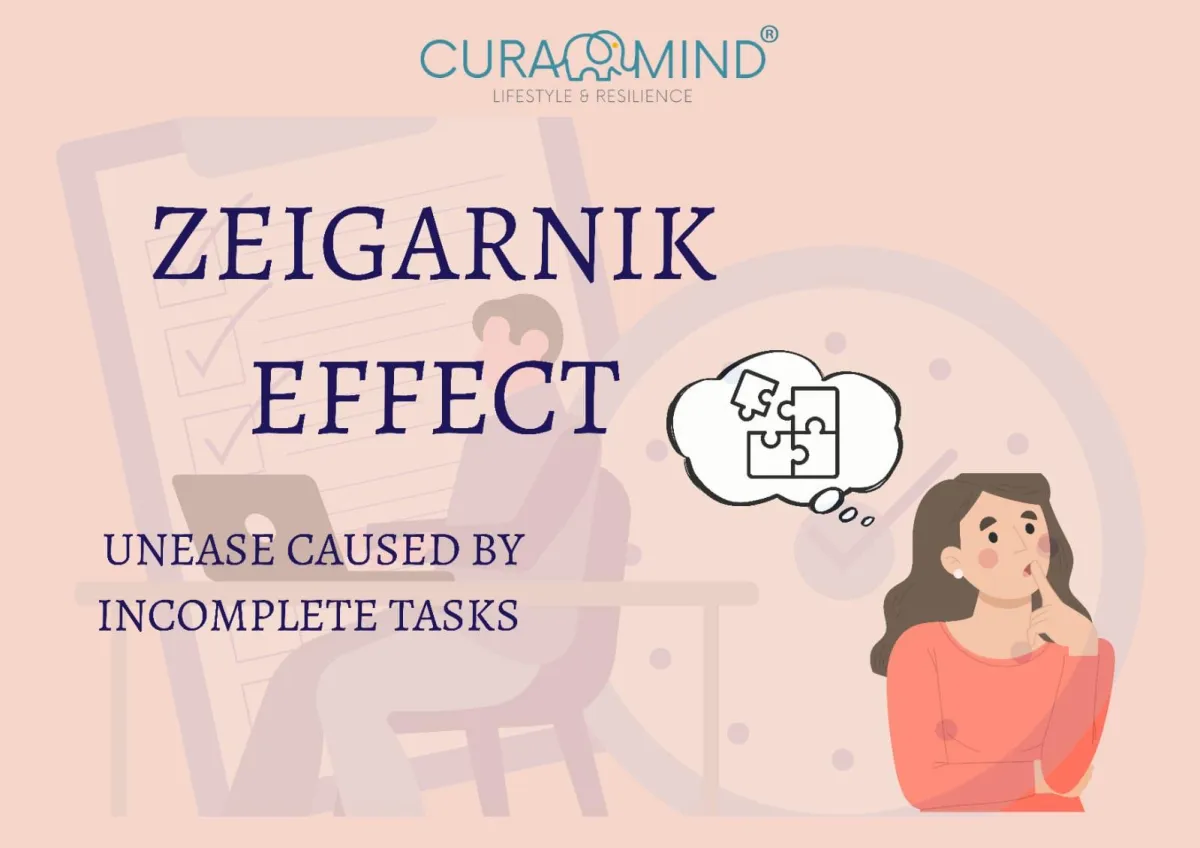
Why Unfinished Tasks Live Rent-Free in Your Head (The Zeigarnik Effect)
Ever notice how you can’t stop thinking about that one thing you haven’t finished?
Maybe it’s a work email, a half-written report, or even that one random sock you still haven’t put away (why is it always the sock?).
Turns out, there’s a reason your brain does this, and it even has a name: The Zeigarnik Effect.
The Story Behind It
In the 1920s, psychologist Bluma Zeigarnik was sitting in a café in Vienna when she noticed something odd: waiters could perfectly remember all the unpaid orders — but once the bill was settled, they seemed to forget them instantly.
She decided to dig deeper, and her research revealed something fascinating:
Our brains are wired to hold on to “unfinished business” until it’s done.
Why This Happens
When you start a task, your brain creates an open loop, a mental reminder that says, “Hey, we started this. Don’t forget to finish it!”
Until you close that loop, your mind keeps nudging you about it.
That’s why you:
Keep thinking about the message you haven’t replied to
Feel relief after checking off even the smallest to-do
End up binge-watching “just one more episode” until 2 a.m.
How to Use It to Your Advantage
The Zeigarnik Effect isn’t just a fun psychology fact, it’s a productivity hack.
Just Start – Even 5 minutes on a dreaded task can kick your brain into “let’s finish this” mode.
Write It Down – If you can’t finish something right now, jot down where you left off. It quiets that mental noise.
Break It Up – Big tasks feel lighter when you turn them into smaller, finishable pieces.
Use It for Learning – Stop halfway through a chapter. Your brain will keep thinking about it, which helps with retention.
When It Becomes Too Much
The flip side? Too many open loops can make you feel anxious and restless.
If your brain feels like a browser with 47 tabs open, try a brain dump, write everything down in a notebook or app.
This gives your mind permission to switch off and relax.
The Takeaway
Your brain isn’t broken for obsessing over unfinished tasks, it’s just doing its job, trying to help you find closure.
So next time you feel that mental tug, smile and think:
“Oh right, it’s just my brain being helpful.”
Then go ahead and close that loop.
